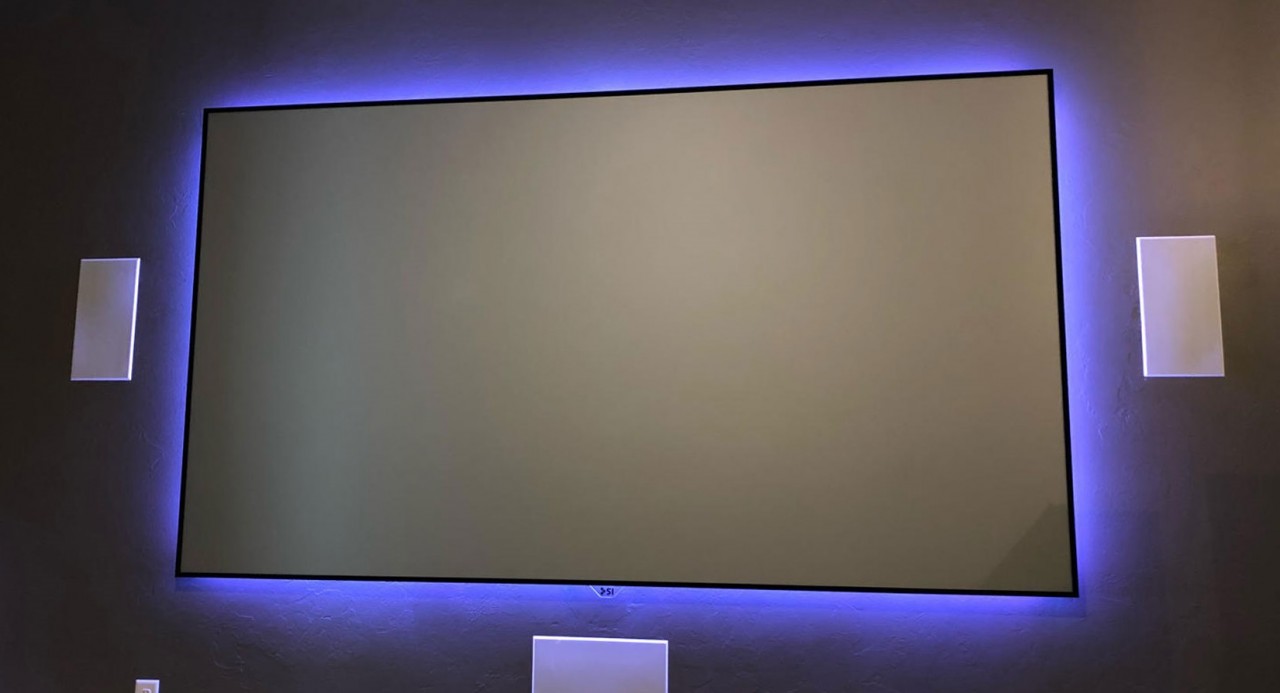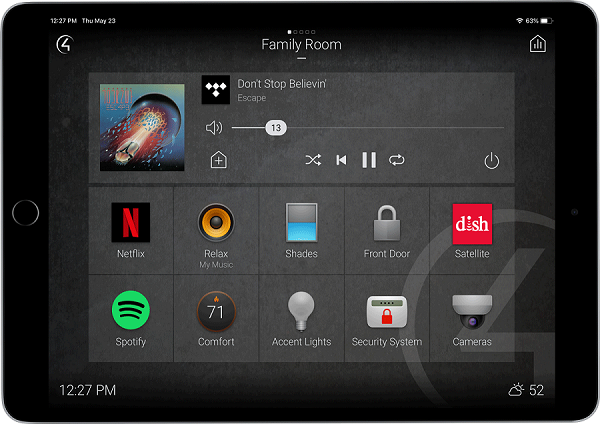How to Design the Ultimate Home Theater Experience
Combine the Right Environment with High-Performance AV Equipment
As consumer audio and video technology continues to improve, homeowners can now enjoy cinematic experiences that even exceed those of commercial theaters. Not only is the quality often better, but there's the added relaxation of being in the comfort of home and on your schedule.
How can you ensure the home theater in your Davenport, IA, offers the ultimate viewing experience for your family? Everything from room dimensions to speaker layouts make a difference. Designing the ultimate theater is easy — if not simple — if you follow the steps and tips outlined below.
SEE MORE: Where to Place Your Home Theater Installation
1) Choosing Your Theater Location
It all starts with finding the ideal space for your home theater. Not only do you want good sound isolation to reduce ambient noise — and to keep from disrupting the rest of the house — but limited natural light as well.
During your search, look for rectangular rooms where sound disperses better from your speakers. For example, many households opt for basement theaters to truly optimize their AV quality. Even if your space doesn’t tick all the boxes, you can use acoustic treatments and motorized shades to make up for some of the room’s inherent issues.

2) Picking Your Theater Display
The general rule of thumb is to have your screen be a third the size of your viewing distance. Projectors are better for larger rooms since screens scale up without too much of a cost increase. We work with Screen Innovations and Da-Lite, which offer screens over 200 inches diagonal in size. Designed with specialty screens to reject light not coming from your projector, they work even in spaces with ambient lighting.
Of course, the quality of the projector is just as important. We recommend looking for projectors from companies like Epson or Sony. They offer high-lumen (super bright) projectors for better contrast. In tighter spaces with space or stylistic limitations, short-throw projectors which sit closer to the screen are a great option.
Any rooms with a lot of ambient lighting, though, will still benefit from flatscreen displays. With higher color variance and contrast — especially when it comes to deep black — we recommend ultra-high-resolution displays from Sony, Samsung, and LG.
Entertainment preferences are also relevant when deciding between a TV or projector. Naturally, movie buffs that want an immersive experience likely prefer the projector experience. Displays for gaming, TV shows, and sports tend to be a bit smaller, so flatscreens probably do a better job.

3) Setting Up Your Surround Sound
You don’t want to forget about planning out your surround sound system. Start by figuring out where your display and seating will go, then strategically lay out your speakers to create authentic three-dimensional sound.
Speakers in a recommended Dolby Atmos set up go in front, behind, to the side, and — most importantly — above the viewer. Instead of sticking to specific channels, Dolby Atmos signals move freely around the room. So the more speakers you have, the freer the audio is to recreate a sonic vision in your theater.
For this setup, you’ll need Dolby Atmos-enabled speakers. We typically work with Bowers & Wilkins for high-performance theaters since they offer the maximum power, clarity, and depth. For a more aesthetic look, we recommend Sonance's theater line, which stays entirely hidden within the walls and ceilings without sacrificing any of the quality.
4) The Finishing Touches
Once you’ve chosen your room and AV gear, it’s time to consider adding a personal touch to your theater. Kick back and enjoy in a place that mimics a classic movie theater, a drive-in theater, or a set from your favorite movie. Not only do we create the ideal environment, but we ensure it doesn't come at the expense of your comfort or AV quality.
Each theater installation should include carpeting to reduce sound vibrations. For seating, either individual seats in raised rows or family-friendly sofas or beanbags will do the trick. Outfit the room with a bit of ambient lighting, including LED strip lighting on the floor and wall sconces. These are ideal since they never send light directly towards your screen. Cover windows with elegant drapes or blackout shades.

5) Bringing It All Together
Finally, to get the real potential out of your home theater, it needs to be easy to use. We add Control4 to our installations, so our clients have a way to manage lights, audio, video, shades, and even climate control from one intuitive touchpad. And with their new OS 3 software upgrade, it’s simpler than ever to manage your entertainment!
A new Active Media Bar on your home screen lets you know what’s playing and adjust volume, play, or pause without having to go into a separate menu. With their new Favorites, add your go-to channels or streaming services on your main dashboard to access them with just one tap when you’re ready to start watching.
Enjoy your favorite movies, TV shows and sports teams like never before with a home theater that offers unrivaled audio and video quality. Each installation is unique, so it all starts with a one-on-one consultation where we help you find the best location and equipment for your space.
To get started, all you have to do is reach out to us by calling (888) 702-7800, filling out our contact form, or chatting with us on the bottom right.



